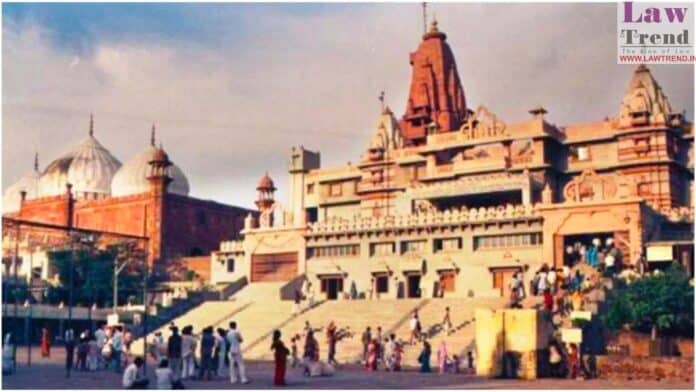The Supreme Court today took a significant step in the ongoing dispute over the Krishna Janmabhoomi-Shahi Eidgah Mosque in Mathura by scheduling a further hearing in two weeks and asking both parties to submit written summaries on the maintainability of the Hindu group’s lawsuits.
The current legal battle stems from a challenge to an August 1 Allahabad High Court ruling that recognized the validity of 18 lawsuits filed by various Hindu organizations. These groups claim the land, allegedly the birthplace of Lord Krishna, arguing that a 1968 agreement permitting the Shahi Eidgah Mosque on the site is invalid.
Justices Sanjiv Khanna and Sanjay Kumar, who are overseeing the proceedings, have asked for a detailed exploration into whether the suits are legally admissible under current statutes, specifically questioning the application of Section 10 of the Letters Patent Appeal Act. This request follows the Mosque Committee’s objection that the act has been repealed in Uttar Pradesh, thereby questioning the Allahabad High Court’s jurisdiction over this matter.
During today’s hearing, Advocate Tasneem Ahmadi, representing the Mosque Committee, argued the absence of valid legal grounds for the Allahabad High Court’s decision, while the bench prompted a closer examination of specific rules that could influence the case’s trajectory.
The Krishna Janmabhoomi temple, adjacent to the historical Shahi Eidgah Mosque, has been a flashpoint of religious and historical contention, with Hindu litigants asserting that the 1968 trust agreement with the Shahi Masjid Eidgah Trust was forged under duress or fraudulent circumstances. These claimants are advocating for their right to worship at the site, challenging the mosque’s existence on what they consider sacred land.
The Allahabad High Court previously consolidated all related cases from Mathura to its docket, recognizing the profound public interest and the broader communal impacts of the dispute. The Supreme Court has decided to address the issue of this case transfer separately from other legal questions, ensuring a focused discussion on each aspect of the conflict.




